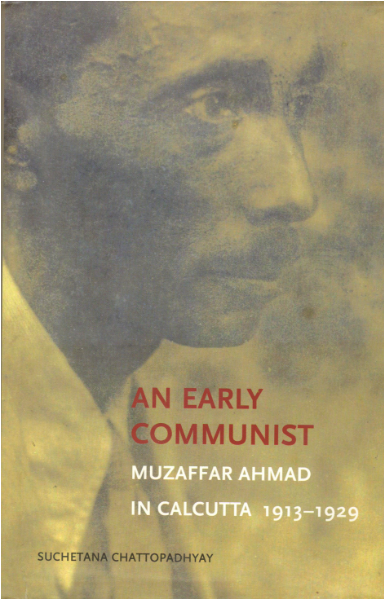An Early Communist
April 2012
6.25 x 9.5 inches
(xiv+306) 320 pages
ISBN : 978-81-89487-93-5
Language: English
From an occasionally employed, lower middle-class Bengali Muslim intellectual on the borderline of starvation in the city, he was to become ‘the chief accused’ at the Meerut communist trials started by the colonial government in 1929. What was the road travelled before challenging imperialism ‘from the dock’? In 1913, Muzaffar Ahmad (1889–1973) was just one more individual adrift in the sea of migrants arriving from rural Bengal to Calcutta. His ambition was to be a writer. Yet in the vortex of metropolitan upheavals, his life would take a completely different turn. Taking Muzaffar Ahmad’s early career (1913–29) as its chronological frame, this book examines the dialectical interplay between social being and a wider social consciousness in late-colonial Bengal which drew a section of Muslim intellectuals to communism.
Muzaffar’s life converged with a significant phase in the social and political history of India and the world: 1913 marked the eve of the First World War, while the Wall Street stockmarket crash set off the Great Depression in 1929. During this period, especially after the success of the Bolshevik Revolution in 1917, socialist ideas and communist activism became politically familiar in different parts of the globe. In the post-First World War climate, many alienated urban intellectuals – from Cairo to Shanghai – stood at the crossroads of established identities and radical currents. Informed by working-class protests from below and a leftward turn in the literary/cultural fields, many in India were also moving away from the political routes open to those from their social backgrounds to comobat colonialism and identifying with alternative visions of decolonization.
By tracing this process in the context of Calcutta through Muzaffar Ahmad’s transitions, the little investigated history of the left in Bengal prior to Meerut is unravelled, and is related to the convergences between individual radicalization and the emergence of a new political space in a colonial city. The collected histories of communism, port-cities, Bengal Muslims, workers, intellectuals, youth, migration, colonial intelligence, early left organization, radical prose, local/regional activism and internationalist currents are also probed in this context.

“The author thus addresses a crucial question related to Indian Communism regarding its roots in and relevance to the Indian necessities. Through a cityscape she shows the significance of socialism for moulding a sensitive youth with an awakening political mind… Thus through the projection of a ‘life’ the author has placed before us a ‘prism’ to explore the social origin of leftism in the city and its surroundings.”
Ritwika Biswas, The Book Review
“An Early Communist is a veritable primer for the times… What role do individuals play in shaping collective histories? Chattopadhyay’s excellent study prompts this and related questions while skillfully analyzing the interplay among historical forces in early twentieth century Bengal.... Drawing on a wide range of vernacular newspapers and magazines, as well as judicial records and the archives of the colonial surveillance state, she draws a compelling portrait of the age and offers what will surely come to be seen as an exhaustive, if not definitive, history of early communism in the region.”
Antoinette Burton, History Workshop Journal
“There were a number of factors from financial difficulties, the strength of other competing ideologies such as “nationalism and communalism,” internal factional strains, and State repression, all of which eroded the radical potential of leftist politics. Her analysis thus opens up the salient issue of the 1920s, and the way in which the fate of revolutionary politics in India was inextricably bound to international developments.”
Atiya Khan, Biblio
“In her remarkable book An Early Communist, the historian Suchetna Chattopadhyay locates the social and political growth of Muzaffar Ahmad in the city… Suchetna Chattopadhyay does an exemplary job in constructing the scene of the audacity of the communists. She provides a rich description of the obvious constraints they faced, notably from the colonial state…”
Vijay Prashad, Frontline
